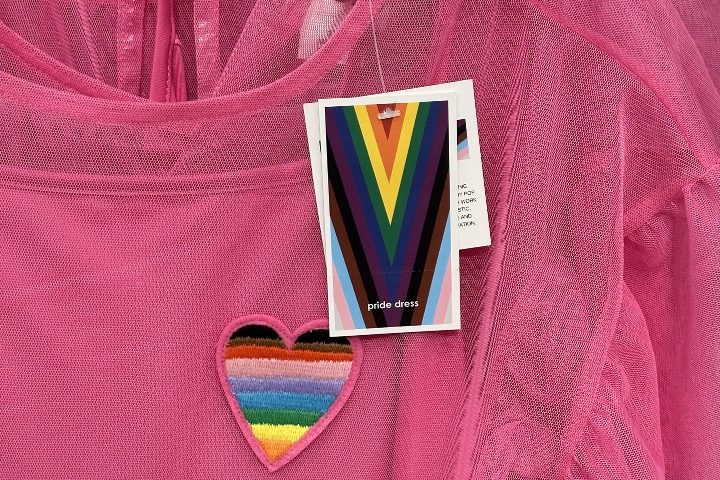
On Tuesday, America First Legal filed a lawsuit against the Target Corporation on behalf of shareholder Brian Craig. The lawsuit alleges that the Minneapolis-based corporation misled shareholders about its Environmental, Social, and Governance (ESG) and Diversity, Equity, and Inclusion (DEI) mandates, causing shareholders to lose billions of dollars in market share.
Craig and America First allege that Target only considered far-left investors when it began marketing LGBT clothing, including swimwear, to children in May as part of its “Pride” celebration. The resulting backlash included a boycott of Target stores that resulted in a market cap loss of nearly $16 billion.
“Target’s management has misled investors, assuring them that the corporation oversees social and political issues and risks to protect shareholders, when behind closed doors, it works for its extremist hard-left ‘stakeholders’ at the expense of its customers and shareholders,” a press release from America First said.
More specifically, “Target embraced the radical transgender agenda with its children-and-family-themed ‘Pride’ marketing and sales campaign – the corporation’s infamous ‘Pride’ collection included clothing for young children with rainbow Mickey Mouse symbols, LGBT-themed bibs and onesies for babies, and ‘tuck-friendly’ bathing suits for ‘transgender women.'”
According to Stephen Miller, the former Donald Trump aide who founded America First Legal, Target has run afoul of federal law with its commitment to ESG ideals.
“America First Legal is SUING Target in federal court for violating the Securities Exchange Act after destroying shareholder value by pushing sexual propaganda to kids,” Miller tweeted.
That point was echoed by Gene Hamilton, America First Legal’s vice president and general counsel.
“Federal law requires publicly-traded corporations to provide certain information to shareholders in their proxy statements that allow those shareholders to make informed decisions. As alleged in our complaint, Target failed to execute its duty to its shareholders by making statements that led them to believe that political and social risks were being assessed–when in reality, the only thing Target’s Board and Management cared about was how effectively they fulfilled the desires of various metrics advanced by leftwing “stakeholders.” In so doing, they caused our client to lose a substantial amount of money, and we will vindicate his rights in federal court,” Hamilton said.
America First also pointed out that it’s not the first time Target has placed “woke” ideals over the wishes of customers.
“For example, after the North Carolina legislature adopted a law in 2016 to keep biological men out of bathrooms used by women and girls, Target released a ‘Pride Manifesto‘ and welcomed its employees and shoppers to use restrooms and fitting rooms ‘corresponding to their gender identities,'” America First said.
In the bathroom case, Target admitted that it “didn’t adequately assess the risk” and acknowledged that “the ensuing backlash was self-inflicted,” but refused to apologize, instead doubling down on their position.
“For far too long, large corporations have recklessly pandered to the left and ‘bent the knee’ to serve the woke elites,” the America First press release concluded.
The backlash against Target’s “Pride” line of products came in the wake of Bud Light’s Dylan Mulvaney fiasco, when the long-dominant American brand chose to align itself with the transgender influencer. Thus far, the Bud Light brand has lost nearly $400 million in sales, representing a 10 percent drop in revenue.
Recently, Anheuser-Busch, Bud Light’s parent company, announced that it was selling eight of its brands, including Shock Top, Blue Point, Breckenridge Brewery, Redhook Brewery, and HiBall Energy, in order to raise cash. The company has had to let go almost 400 employees since the Mulvaney fiasco began in March.
In the Target case, the plaintiff is seeking “A declaration that Defendants violated Section 14(a) and Section 10(b) of the Exchange Act; A declaration that Target’s 2023 director election was void; An order awarding to Plaintiff the damages he has sustained as a result of the violations set forth above from each Defendant, jointly and severally; and Such other and further relief as the Court deems just and proper, including reasonable attorney’s fees and costs.”
As of this writing, Target has not yet commented publicly on the lawsuit.



